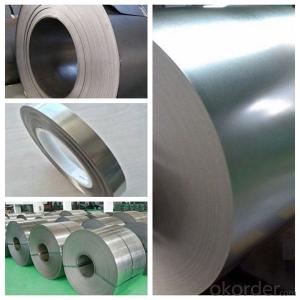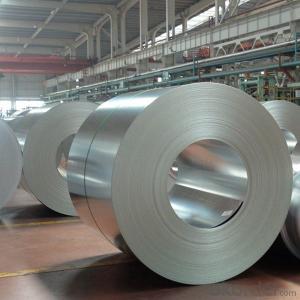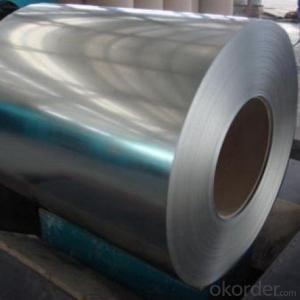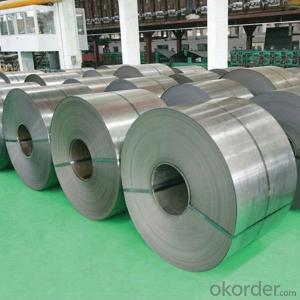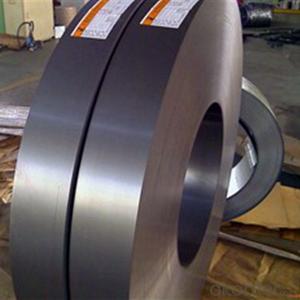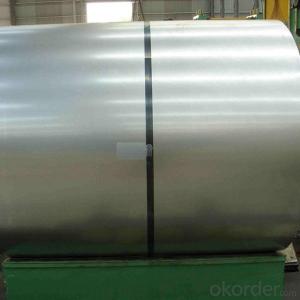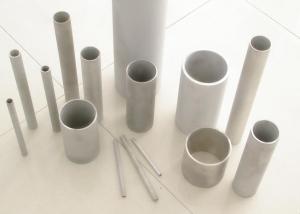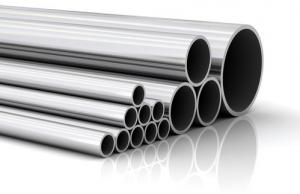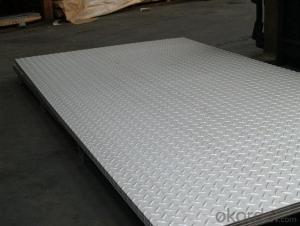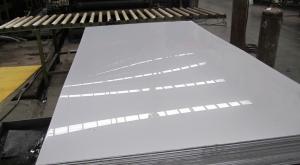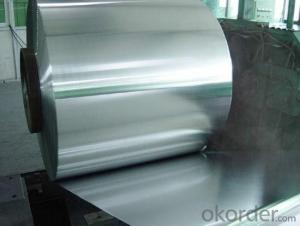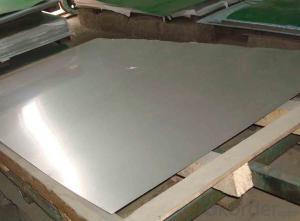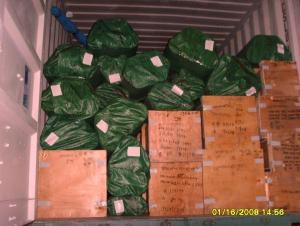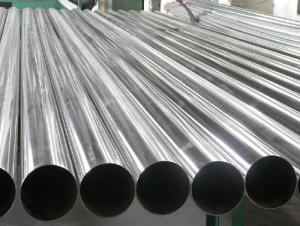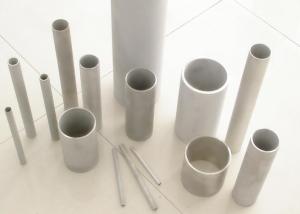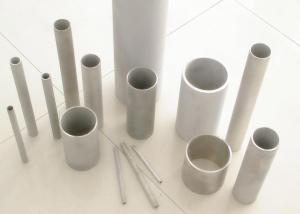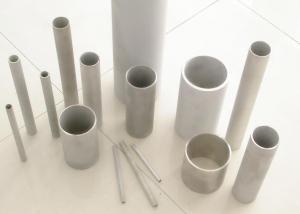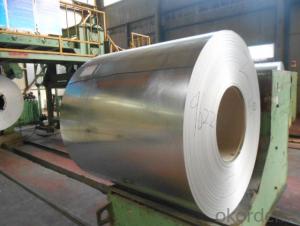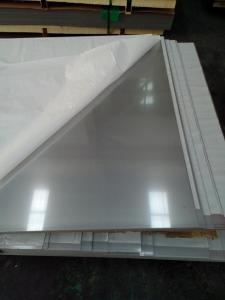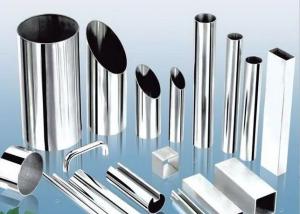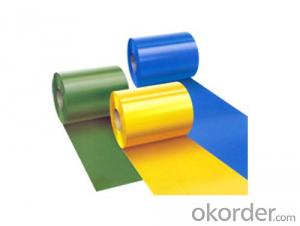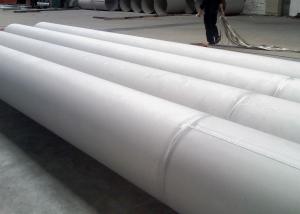Steel Sheets Steel Plates Made In China Hot Rolled Steel Coils
- Loading Port:
- Shanghai
- Payment Terms:
- TT OR LC
- Min Order Qty:
- 50 m.t.
- Supply Capability:
- 20000 m.t./month
OKorder Service Pledge
OKorder Financial Service
You Might Also Like
Item specifice
Specifications for Stainless Steel Coils/Sheets:
Grade | C ≤ | Si ≤ | Mn ≤ | P ≤ | S ≤ | Ni ≤ | Cr ≤ |
201 | 0.12 | 0.75 | 7.00 | 0.045 | 0.045 | 1.00-1.28 | 13.70-15.70 |
202 | 0.15 | 1.00 | 2.25 | 0.045 | 0.045 | 4.07-4.17 | 14.00-16.00 |
304 | 0.08 | 0.75 | 2.00 | 0.045 | 0.03 | 8.00-11.00 | 18.00-20.00 |
304L | 0.035 | 0.75 | 2.00 | 0.045 | 0.03 | 8.00-13.00 | 18.00-20.00 |
309 | 0.15 | 0.75 | 2.00 | 0.045 | 0.03 | 12.00-15.00 | 22.00-24.00 |
310S | 0.08 | 1.50 | 2.00 | 0.045 | 0.03 | 19.00-22.00 | 24.00-26.00 |
316 | 0.08 | 1.00 | 2.00 | 0.045 | 0.03 | 10.00-14.00 | 16.00-18.00 |
316L | 0.035 | 0.75 | 2.00 | 0.045 | 0.03 | 10.00-15.00 | 16.00-18.00 |
321 | 0.04-0.10 | 0.75 | 2.00 | 0.045 | 0.03 | 9.00-13.00 | 17.00-20.00 |
405 | 0.08 | 0.75 | 1.00 | 0.045 | 0.03 | 0.06 | 11.5-13.5 |
409 | 0.089 | 1.00 | 1.00 | 0.045 | 0.05 | 0.06 | 10.50-11.75 |
410 | 0.15 | 0.75 | 1.00 | 0.045 | 0.03 | 0.06 | 11.5-13.5 |
420 | 0.16-0.25 | 1.00 | 1.00 | 0.040 | 0.03 | 0.06 | 12.00-14.00 |
430 | 0.12 | 0.75 | 1.00 | 0.045 | 0.03 | 0.06 | 16.00-18.00 |
Products Description for Stainless Steel Coils/Sheets:
Name: stainless steel coils/plates/sheets
Discharge Port: Any Port, China
Cold Rolled Size: Thickness0.3-8mm,Width:280-2100mm
Hot Rolled Size: Thickness3-14mm,Width:650-2100mm
Hot Rolled/Cold Rolled Plates : Thickness2-80mm,Width:1500-3000mm
Coil Weight: About 20 Tons
Grade: 201,202,304/304L/304H, 316/316L/316H, 409/L,430 etc.
Technique: Hot Rolled/Cold Rolled
Finish:2B, BA, 2D, No1, No2 etc
Edge: Mill Edge / Slitting Edge
Packaging: In bundles, or as customer's requirement
Place of Origin: Made in China
MOQ: 20 Tons
Payment Terms: 100% LC at sight, or 100%TT in advance
Delivery Time: With 30-40 days after deposit
Features of Stainless Steel Coils
(1)Good ductility
(2)Good corrosion resistance
(3)Excellent abrasion resistance and fatigue strength
(4)Good weldability
(5)Oxidation resistant performance
(6)Excellent in high temperature
Packaging & Delivery for Stainless Steel Coils/Sheets:
Packaging Detail Standard export packing or following customer's demand
Delivery Time: Within 30-40 days after deposit or according to the order quantity
Detail picture for Stainless Steel Coils/Sheets
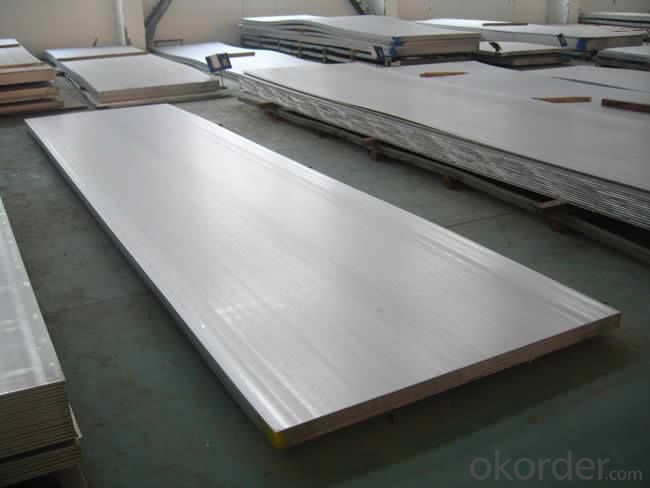
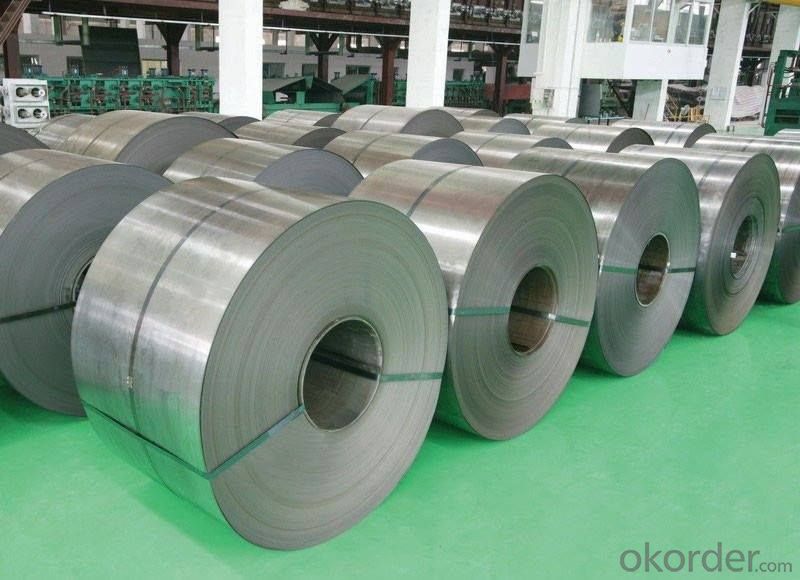
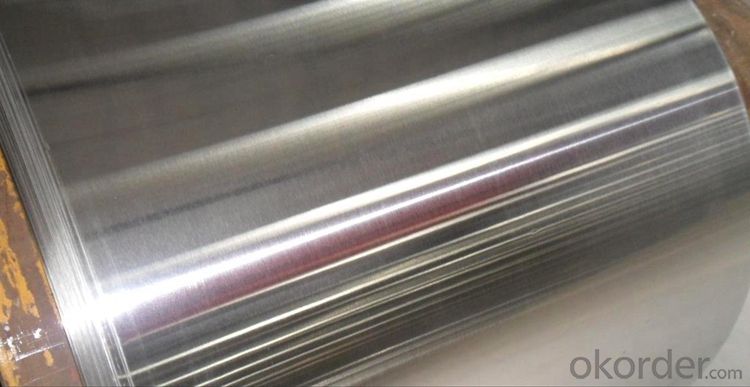
Application of Stainless Steel Coils
Finish | Definition | Application |
2B | Those finished, after cold rolling, by heat treatment, pickling or other equivalent treatment and lastly by cold rolling to given appropriate luster. | Medical equipment, Food industry, Construction material, Kitchen utensils. |
BA | Those processed with bright heat treatment after cold rolling. | Kitchen utensils, Electric equipment, Building construction. |
NO.3 | Those finished by polishing with No.100 to No.120 abrasives specified in JIS R6001. | Kitchen utensils, Building construction. |
NO.4 | Those finished by polishing with No.150 to No.180 abrasives specified in JIS R6001. | Kitchen utensils, Building construction, Medical equipment. |
NO.1 | The surface finished by heat treatment and pickling or processes corresponding there to after hot rolling. | Chemical tank, pipe. |
FAQ for Stainless Steel Coils/Sheets:
Q:How to order?
A: Please send us your purchase order by email or fax .or you can ask us to send you a proforma invoice for your order .We need to know the following information for your order.
1) Shipping information-company name, street address, phone number, fax number, destination sea port
2) Product information – Quantity, Specification (steel type, thickness, width, surface finish)
3) Delivery time required
4) Forwarder's contact details if there's any in China
- Q:What are the different types of corrosion that stainless steel sheets can resist?
- Stainless steel sheets are known for their exceptional corrosion resistance compared to other metals. There are several types of corrosion that stainless steel sheets can resist, including: 1. Uniform corrosion: This type of corrosion occurs when the entire surface of the stainless steel sheet is exposed to a corrosive environment. However, stainless steel contains a minimum of 10.5% chromium, which forms a protective oxide layer on the surface, preventing further corrosion. 2. Pitting corrosion: Pitting corrosion is localized corrosion that causes small pits or holes on the surface of the stainless steel sheet. Stainless steel's high chromium content enables it to form a passive film, preventing pitting corrosion from progressing. 3. Crevice corrosion: Crevice corrosion occurs in confined spaces or gaps where stagnant corrosive substances can accumulate. Stainless steel sheets have a resistance to crevice corrosion due to their ability to maintain passivity and prevent the accumulation of corrosive agents. 4. Stress corrosion cracking (SCC): SCC is a form of corrosion that arises from the combined effects of a corrosive environment and tensile stress. Stainless steel sheets are designed to resist SCC, as their high alloy content and passive film formation provide protection against this type of corrosion. 5. Intergranular corrosion: Intergranular corrosion affects the grain boundaries of stainless steel, making it susceptible to cracking and weakening. However, stainless steel sheets are typically manufactured with low carbon content, which prevents intergranular corrosion and ensures their resistance. Overall, stainless steel sheets offer excellent resistance to various types of corrosion, making them a preferred choice for numerous applications in industries such as construction, food processing, and marine engineering.
- Q:What are the advantages of using stainless steel sheets in the medical industry?
- Using stainless steel sheets in the medical industry offers several benefits: 1. Maintaining Hygiene and Cleanliness: Stainless steel's non-porous nature makes it easy to clean and disinfect, making it an excellent option for medical equipment, surgical instruments, and hospital furniture. It resists bacteria, mold, and other pathogens, ensuring a hygienic environment. 2. Ensuring Longevity and Durability: Stainless steel can withstand harsh conditions, including high temperatures, humidity, and corrosive substances. This durability extends the lifespan of medical equipment and instruments, reducing the need for frequent replacements. 3. Providing Strength and Safety: Stainless steel sheets offer exceptional strength and structural integrity, making them suitable for applications that require resistance to impact and pressure. This is crucial in the medical industry, where instruments and equipment are constantly utilized and handled. 4. Resisting Stains and Corrosion: Stainless steel is highly resistant to stains and corrosion, even in aggressive environments. This property is essential in medical facilities where exposure to various chemicals and liquids is common. The resistance to corrosion ensures that stainless steel sheets remain intact and do not release harmful substances into the environment. 5. Enhancing Aesthetic Appeal: Stainless steel sheets have a sleek and modern appearance that contributes to the overall aesthetic appeal of medical equipment and instruments. This creates a positive impression on patients, instilling confidence in the quality and cleanliness of the medical facility. 6. Promoting Recyclability: Stainless steel is a sustainable material that can be recycled without any loss in quality. This reduces the environmental impact of the medical industry by minimizing waste and conserving resources. In conclusion, stainless steel sheets offer advantages such as hygiene, durability, strength, resistance to stains and corrosion, aesthetic appeal, and recyclability. These qualities make stainless steel a reliable and cost-effective choice for medical equipment, instruments, and other applications in healthcare settings.
- Q:Are stainless steel sheets suitable for elevator floor panels?
- Yes, stainless steel sheets are suitable for elevator floor panels. Stainless steel is a strong and durable material that is resistant to corrosion, making it a suitable choice for high-traffic areas like elevator floors. It is also easy to clean and maintain, making it ideal for public spaces. Additionally, stainless steel sheets can be customized in terms of size, shape, and finish to meet specific design requirements and aesthetic preferences. Overall, stainless steel sheets offer a combination of durability, aesthetic appeal, and ease of maintenance that make them well-suited for elevator floor panels.
- Q:What are the common grades of stainless steel sheets used in construction?
- Stainless steel sheets used in construction are typically classified into three common grades: austenitic, ferritic, and duplex stainless steels. The most widely used grades are austenitic stainless steels, including 304 and 316, which are known for their excellent corrosion resistance and high strength. These grades are commonly applied in architectural applications, roofing, cladding, and structural components. On the other hand, ferritic stainless steels, represented by 430, possess good corrosion resistance and high toughness, making them suitable for applications that prioritize strength and durability. They are often utilized for decorative purposes, interior design elements, and automotive trim. Meanwhile, duplex stainless steels like 2205 offer a combination of outstanding corrosion resistance and high strength, making them ideal for heavy-duty construction applications. These grades are frequently used in bridges, offshore structures, and industrial plants where superior strength and resistance to chloride-induced stress corrosion cracking are necessary. It should be emphasized that the choice of stainless steel sheet grade depends on the specific requirements of the construction project, including the environment, load-bearing capacity, and aesthetic considerations. Seeking advice from a materials engineer or a stainless steel supplier can help determine the most suitable grade for a particular construction application.
- Q:Can stainless steel sheets be used for automotive applications?
- Yes, stainless steel sheets can be and are commonly used for various automotive applications. This is due to their excellent corrosion resistance, durability, and aesthetic appeal, making them suitable for components such as exhaust systems, body panels, trim, and interior parts in automobiles.
- Q:Are stainless steel sheets resistant to heat and high temperatures?
- Yes, stainless steel sheets are highly resistant to heat and high temperatures. They can withstand extreme temperatures without warping, melting, or losing their structural integrity.
- Q:How do I determine the hardness of stainless steel sheets?
- To determine the hardness of stainless steel sheets, you can use various methods such as the Rockwell hardness test, Brinell hardness test, or Vickers hardness test. These tests involve applying a specific amount of force to the surface of the steel sheet and measuring the depth or size of the resulting indentation. The measurement can then be compared to a standardized hardness scale to determine the hardness of the stainless steel sheets.
- Q:Can stainless steel sheets be used for conveyor belts?
- Certainly! Conveyor belts can utilize stainless steel sheets. Stainless steel, being highly durable and resistant to corrosion, is well-suited for diverse industrial uses, such as conveyor belts. These sheets possess the capability to endure high temperatures, heavy loads, and abrasive substances, making them perfect for conveying purposes. Moreover, the smooth surface of stainless steel facilitates the smooth movement of products and reduces friction, ensuring efficient and dependable conveyor operations.
- Q:Are stainless steel sheets suitable for nuclear power plants?
- Yes, stainless steel sheets are suitable for use in nuclear power plants. Stainless steel is a widely used material in the nuclear industry due to its unique properties that make it suitable for such high-risk environments. Firstly, stainless steel has excellent corrosion resistance, which is crucial in nuclear power plants where the presence of corrosive substances can be high. Corrosion can compromise the structural integrity of materials, leading to safety hazards and potential failures. Stainless steel's resistance to corrosion helps ensure the longevity and reliability of equipment and structures in nuclear power plants. Secondly, stainless steel has high strength and toughness, making it capable of withstanding extreme conditions such as high temperatures and pressures that are present in nuclear power plants. This strength and toughness enable stainless steel to withstand the harsh environment and potential mechanical stresses that can occur during normal operation or accidents. Additionally, stainless steel has good heat resistance, which is important in nuclear power plants where high temperatures are generated during the nuclear fission process. Stainless steel's ability to retain its strength and structural integrity even at elevated temperatures makes it suitable for containing and handling radioactive materials and hot fluids. Furthermore, stainless steel is easy to clean and maintain, which is crucial in nuclear power plants where cleanliness and sterility are essential. Regular cleaning and maintenance are required to prevent the build-up of radioactive contaminants and ensure the safe and efficient operation of equipment and systems. Overall, stainless steel sheets are highly suitable for use in nuclear power plants due to their corrosion resistance, strength, toughness, heat resistance, and ease of maintenance. The use of stainless steel helps ensure the safety, reliability, and longevity of equipment and structures, contributing to the overall efficiency and effectiveness of nuclear power plants.
- Q:Stainless steel plate glued to tiles, what glue?
- Depending on the size of the material and the number of adhesive areas, you can choose a different glue, the same function of glue, you should compare the quality and price of glue. Before you recommend what glue to use, you should first identify the following questions to choose the right glue.
1. Manufacturer Overview |
|
|---|---|
| Location | |
| Year Established | |
| Annual Output Value | |
| Main Markets | |
| Company Certifications | |
2. Manufacturer Certificates |
|
|---|---|
| a) Certification Name | |
| Range | |
| Reference | |
| Validity Period | |
3. Manufacturer Capability |
|
|---|---|
| a)Trade Capacity | |
| Nearest Port | |
| Export Percentage | |
| No.of Employees in Trade Department | |
| Language Spoken: | |
| b)Factory Information | |
| Factory Size: | |
| No. of Production Lines | |
| Contract Manufacturing | |
| Product Price Range | |
Send your message to us
Steel Sheets Steel Plates Made In China Hot Rolled Steel Coils
- Loading Port:
- Shanghai
- Payment Terms:
- TT OR LC
- Min Order Qty:
- 50 m.t.
- Supply Capability:
- 20000 m.t./month
OKorder Service Pledge
OKorder Financial Service
Similar products
New products
Hot products
Related keywords
